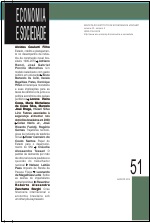Abstract
Este artigo irá se concentrar no estudo comparativo do imposto de renda da pessoa física (IRPF) em países da América Latina, com foco sobre a evolução da estrutura do imposto na região e dos seus níveis de arrecadação. Constatou-se que um típico país latino-americano arrecada muito menos com o IRPF do que a média dos países desenvolvidos, apresentando alíquotas máximas menores e faixas de isenção maiores. Verificou-se que trabalhadores latino-americanos com rendimento entre 67% e 167% do salário médio de cada país apresentam alíquotas médias bastante inferiores às de um país da OCDE. Quanto ao Brasil, a tributação da renda da pessoa física está completamente dentro do esperado para um país da região, com alíquotas e faixas de isenção compatíveis com a sua arrecadação. Conclui-se que há amplo espaço para o reforço do IRPF na América Latina.
Abstract
This article will focus on the comparative study of personal income tax (PIT) in Latin America, with an analysis of the evolution of the tax structure in the region and the revenue collected. It was found that a typical Latin American country collects much less PIT than the average for developed countries, with smaller maximum rates and larger exemption limits. It was also found that the tax rates for Latin American workers with incomes between 67% and 167% of the average wage in each country are well below the average for an OECD country. Regarding Brazil, the taxation of personal income in the country is as expected for a country in the region, with rates and exemption limits consistent with the revenue collected. We conclude that there is ample room for strengthening PIT in Latin America.
Keywords: Latin America, Tax Revenues, Taxation, Tax Rates, Personal Income Tax.
References
BERNARDI, L.; BARREIX, A.; MARENZI, A.; PROFETA, P. Tax system and tax reform in Latin America. Societá Italiana di Economia Pubblica, 2007. (Working paper, n. 591).
CENTRO INTERAMERICANO DE ADMINISTRACIONES TRIBUTARIAS – CIAT. Alicuotas en América Latina. Ciudad de Panamá, República de Panamá, s.d. Disponível em: http://www.ciat.org/index.php/pt/acerca-del-ciat.html.
CORBACHO, A.; FRETES, V.; LORA, E. (Ed.). Recaudar no basta: los impuestos como instrumento de desarrollo. Washington, DC: Banco InterAmericano de Desenvolvimento, 2013.
DAUDE, C.; MELGUIZO, A.; NEUT, A. Fiscal policy in Latin America: better after all? 2010. (Economics E-Journal Discussion Papers, n. 2010-24). Disponível em http://hdl.handle.net/10419/41596.
ENGEL, E.; GALETOVIC, A.; RADDATZ, C. Taxes and income distribution in Chile: some unpleasant redistributive arithmetic. Journal of Development Economics, v. 59, p. 155-192, 1999.
FIGARI, F.; GANDULLIA, L. An outline of tax systems and tax reforms in Latin America. Chapter 2 of Bernardi et al. P. Tax system and tax reform in Latin America. Societá Italiana di Economia Pubblica, 2007. (Working paper, n.591).
GÓMEZ-SABAINI, J. C.; MARTNER, R. Taxation structure and main tax policy issues. (Working Paper Siep, 2007).
GOÑI, E., LOPEZ, J. H.; SERVÉN, L. Fiscal reform for social equity in Latin America. Paper presented at the conference Politicas Econòmicas para un Nuevo Pacto Social em Amèrica Latina. Barcelona, Oct. 2006.
GOÑI, E., LOPEZ, J. H.; SERVÉN, L. Fiscal redistribution and income inequality in Latin America. Washington, D.C.; World Bank, 2008. (Policy Research Working Paper, n. 4487).
HESTON, A.; SUMMERS, R.; ATEN, B. Penn world table version7.1. Center for International Comparisons of Production, Income and Prices at the University of Pennsylvania, Nov. 2012.
INTERNATIONAL LABOUR ORGANIZATION (ILO). Global wage report 2011/2012. Geneva: ILO, 2012.
JIMÉNEZ, J.; SABAINI, J.; PODESTÁ, A . Tax gap and equity in Latin America and the Caribbean. Cepal, 2010. (Fiscal Studies, n. 16).
MAHON, J. Tax reform and income distribution in Latin America. In: CONGRESS OF THE LATIN AMERICAN STUDIES ASSOCIATION, 28, Rio de Janeiro, Jun. 2009.
ORGANIZAÇÃO PARA COOPERAÇÃO E DESENVOLVIMENTO ECONÔMICO (OECD). Revenue statistics in Latin America 1990-2010. Paris: OECD, 2012.
ORGANIZAÇÃO PARA COOPERAÇÃO E DESENVOLVIMENTO ECONÔMICO (OECD).. Taxing wages 2012. Paris: OECD, 2013.
SECRETARIA DA RECEITA FEDERAL DO BRASIL (RFB). Carga Tributária no Brasil 2010. Brasília, DF, 2011.
SILVEIRA, F. G. Tributação, previdência e assistência sociais: impactos distributivos. Tese (Doutorado)–Instituto de Economia, Unicamp, Campinas, 2008.
SIQUEIRA, R.; NOGUEIRA, J.; SOUZA, E. Alíquotas efetivas e a distribuição da carga tributária indireta sobre as famílias no Brasil. XV Prêmio do Tesouro Nacional, Secretaria do Tesouro Nacional, Ministério da Fazenda, 2010. Disponível em http://www.tesouro.fazenda.gov.br/premio_TN/XVPremio/financas/MHtefpXVPTN/Tema _4_MH.pdf.
A Economia e Sociedade utiliza a licença do Creative Commons (CC), preservando assim, a integridade dos artigos em ambiente de acesso aberto.

